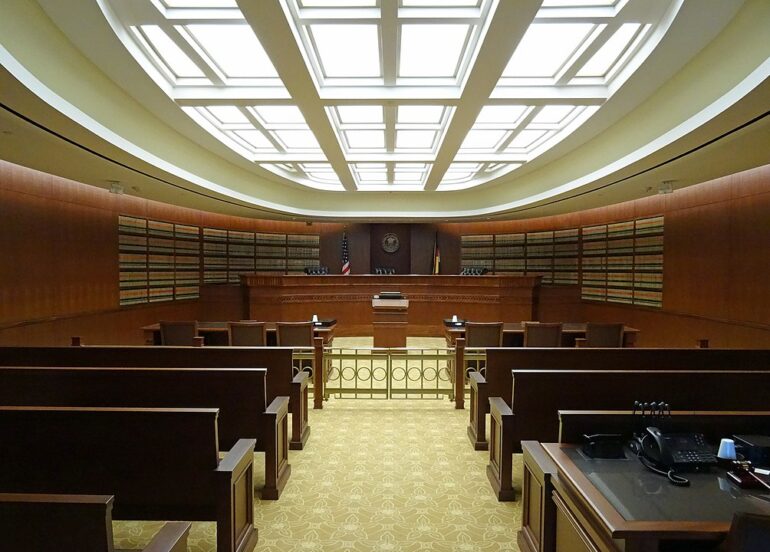A federal court judge has now reportedly stepped in to temporarily halt the deportation of Kilmar Abrego Garcia, an El Salvadoran national with a history of unlawful entry into the United States and prior deportation, raising new questions about how the courts are handling immigration enforcement under the Trump administration.
Abrego Garcia surrendered to ICE agents in Baltimore on Monday, according to Homeland Security Secretary Kristi Noem, who confirmed in a post on X that the Maryland father of three was being processed for removal.
The Department of Homeland Security had arranged for his deportation to Uganda.
But his attorney quickly filed a lawsuit to delay that process. “Until a court has heard his claim for protection, stating that the U.S. could place him in a country where ‘his safety cannot be assured,’” The Associated Press reported.
The case of Abrego Garcia is far from straightforward. He gained public attention after he was previously deported to El Salvador before a court intervened, prompting the Trump administration to return him to the United States to face criminal charges of human smuggling.
Those charges placed him in federal custody in Tennessee, from which he was only released last week before returning to his family in Maryland.
Despite his past, advocates now argue that he should be shielded from removal to Uganda. U.S. District Judge Paula Xinis granted a temporary reprieve on Monday afternoon, blocking the deportation until she can consider whether the Trump administration will allow him to contest his removal there.
“The judge is looking to hold a hearing on whether the Trump administration ‘will give him an opportunity to contest his removal to that country,’” the AP reported.
The ruling highlights the ongoing clash between federal immigration enforcement and the courts, with the executive branch seeking to remove individuals who have violated U.S. laws and judges at times intervening to delay those removals.
Supporters of tougher immigration policies argue that such decisions undermine the ability of the United States to enforce its own borders and immigration statutes.
Abrego Garcia’s background only sharpens that debate. Having been previously deported, returned to the United States, and charged with human smuggling, critics contend his case is emblematic of a broader problem—individuals who flout U.S. immigration laws often remain shielded from removal for years through litigation.
The temporary block issued by Judge Xinis ensures that the legal process will continue to drag on, delaying a resolution.
At the same time, immigration courts have faced pressure from activists to expand protections for foreign nationals who argue they could face harm abroad. Abrego Garcia’s attorney framed the case in exactly those terms, arguing that “his safety cannot be assured” if deported to Uganda.
For now, Abrego Garcia remains in the United States, his fate tied to upcoming hearings.
Whether Judge Xinis ultimately rules in favor of allowing him to contest removal, or permits the Trump administration to carry out its deportation order, the case underscores the broader struggle over the nation’s immigration enforcement system.
[READ MORE: California Democrats Advance Redistricting Plan to Counter GOP Gains in Texas]





